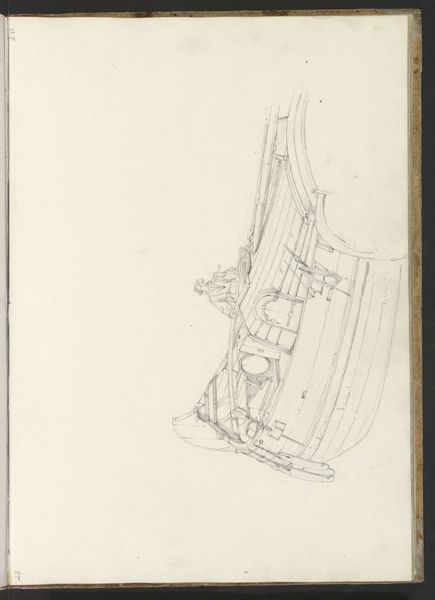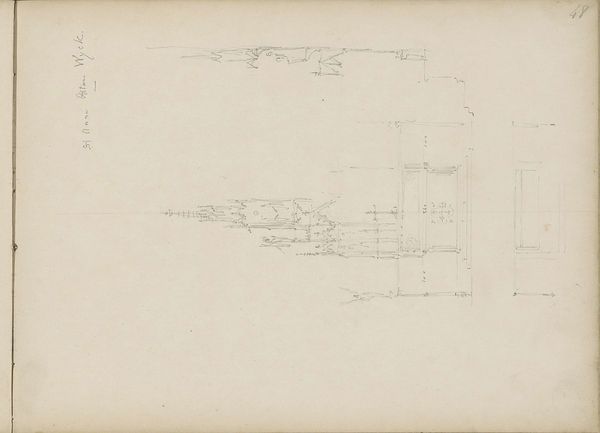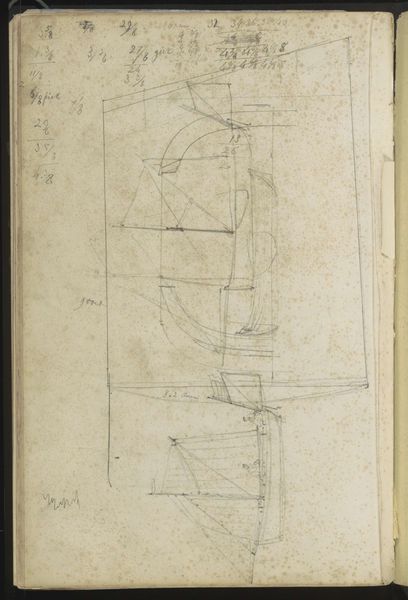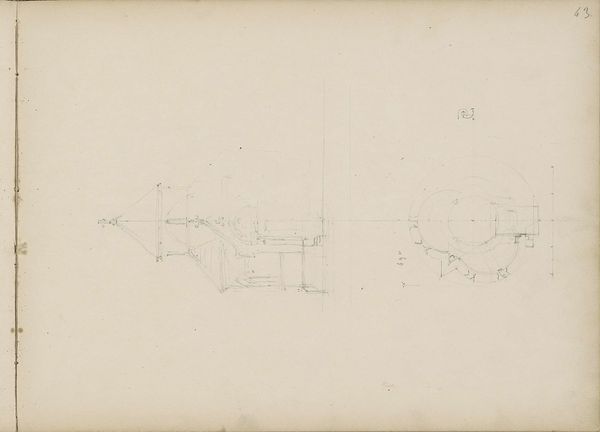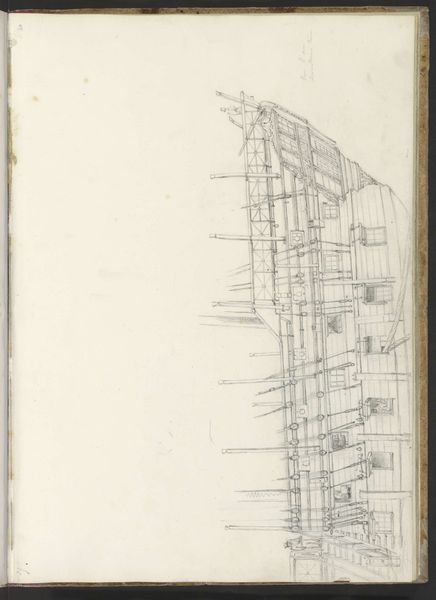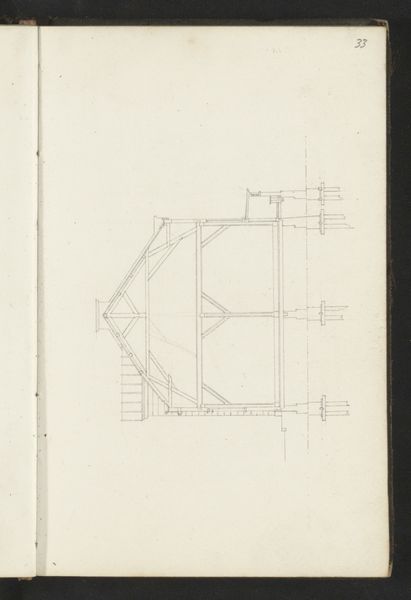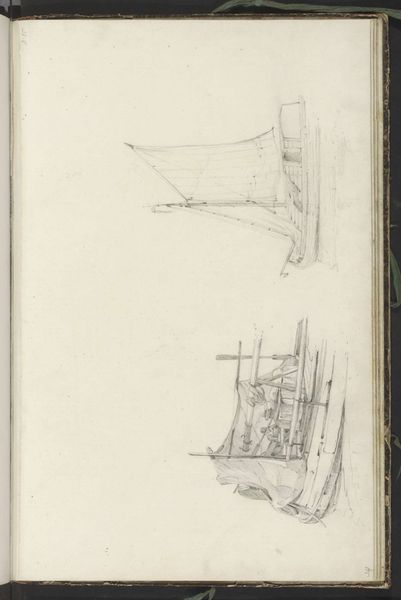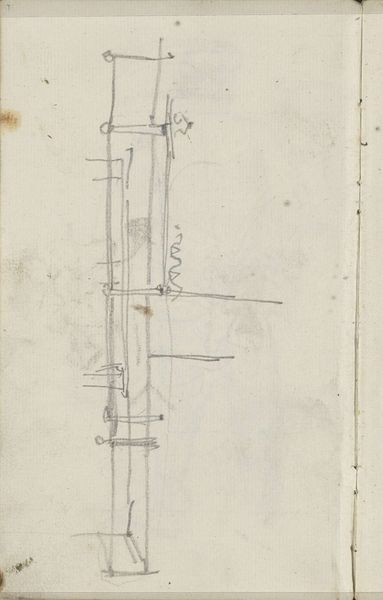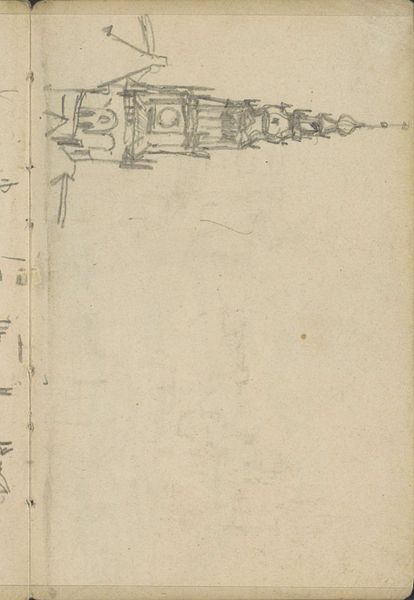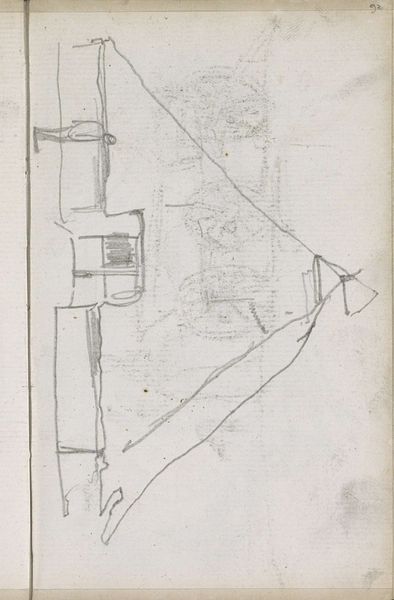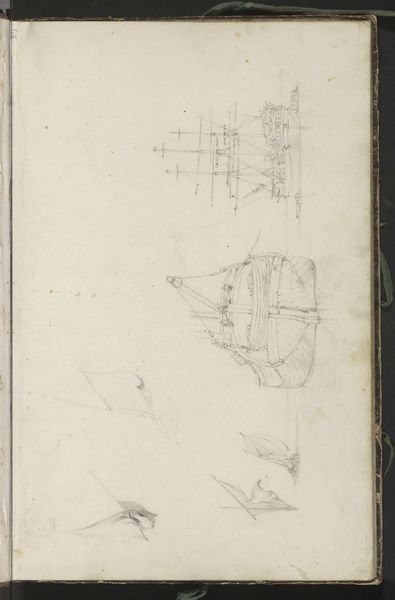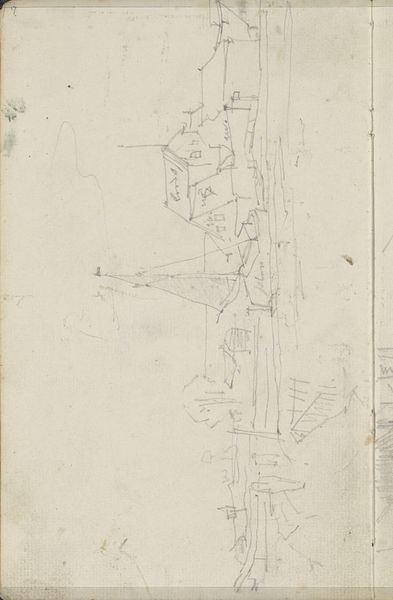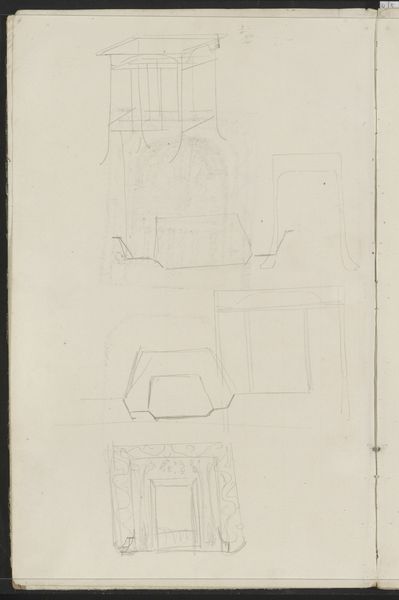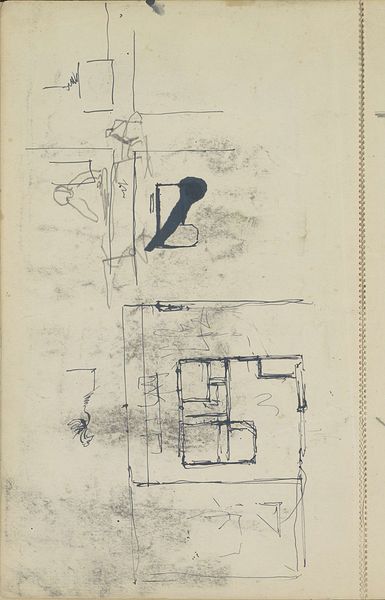
drawing, pencil
#
drawing
#
landscape
#
pencil
#
realism
Copyright: Rijks Museum: Open Domain
Curator: Allow me to draw your attention to this subtle work, "Twee driemasters op het water" - "Two Three-Masted Ships on the Water." It's a pencil drawing by Johannes Christiaan Schotel, dating sometime between 1797 and 1838, and resides here at the Rijksmuseum. Editor: Immediately, I see sketches; studies, perhaps. The sparseness gives them an ephemeral quality, like ships fading into mist, ghosts on paper. What a minimalist take on naval power! Curator: They feel like the echo of ships more than the thing themselves, don’t they? I find this drawing deeply evocative; Schotel’s sparse pencil strokes manage to capture the grandeur and melancholy of the open sea. There's something quite intimate about witnessing an artist working out his vision like this, raw and unpolished. Editor: Yes, raw! I keep coming back to the physical act of drawing: graphite on paper, a cheap and widely available medium used to depict the symbols of global trade and military dominance. The pencil itself becomes implicated in the very systems it portrays, documenting labor, trade, exploitation. It's about access to materials and production processes, and their ability to represent complex subjects with humble means. Curator: I’m taken by that idea. Schotel clearly knew ships; he doesn't romanticize them so much as carefully record their forms, their presence. He was born in 1787 in Dordrecht, a Dutch city with rich naval history. The Dutch Republic dominated maritime trade during the Golden Age. That context seeps into his work. Editor: Absolutely. You can feel the weight of that history in those delicate lines. It's interesting how such simple materials, a piece of paper and pencil lead to these complex conversations on industrial maritime past. Also I'm wondering - what social classes were pencils available to then? I am sure Schotel wasn't just casually engaging, but invested and documenting this trade. Curator: It reminds us that beauty can be found in the simplest of things. Editor: Right, art does not have to be a fancy oil painting on stretched canvas. Its humbleness gives us some peace!
Comments
No comments
Be the first to comment and join the conversation on the ultimate creative platform.
